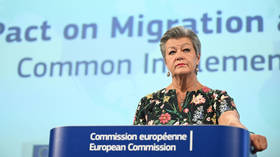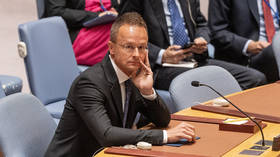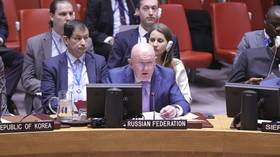EU tackles Hungary over new visa rules for Russians

The EU has asked Hungary to explain its decision to ease visa requirements for certain Russian and Belarusian nationals. The bloc’s Home Affairs commissioner, Ylva Johansson, has warned the move could undermine security.
Budapest has a special fast-track visa regime for certain foreign workers called the national card system. The scheme allows foreigners to work in Hungary for up to two years, has easier requirements for obtaining a work permit and paves the way for a cardholder to apply for permanent residency. Previously, only workers from Ukraine and Serbia were eligible, but in July six countries were added, including Russia and Belarus.
In a post on X (former Twitter) on Thursday, Johansson criticized the move, claiming that “Russia is a security threat” and warning that the EU needs “more, not less vigilance” in dealing with it.
“Giving potential Russian spies and saboteurs easy EU access would undermine the security of us all. Today in a letter I ask the Hungarian government to explain. If their easy access scheme is a risk, we will act,” the commissioner warned.
In the letter, which was addressed to Hungarian Interior Minister Sandor Pinter, Johansson went on to say that while EU member states have the right to issue long-term visas and residence permits unilaterally, they “should consider potential security implications” for the entire bloc. She noted that the EU suspended the visa facilitation agreement with Russia shortly after the outbreak of the Ukraine conflict, and demanded that the Hungarian authorities explain the visa scheme so that Brussels could ascertain whether it is “compatible with EU law.”
The change to the visa rules initially went largely unnoticed and only garnered attention after European People’s Party’s Chairman Manfred Weber criticized it in a letter to European Council President Charles Michel. Weber claimed the new scheme “creates grave loopholes for espionage activities” and called on the EU Council to adopt measures to “protect the integrity” of the Schengen area and prevent other EU members from taking similar initiatives.
The spokesman for Hungarian Prime Minister Viktor Orban, Zoltan Kovacs, brushed off Weber’s words as “absurd and hypocritical” and said Hungary’s migration system was the “strictest on the continent.”
Hungary, which currently holds the six-month rotating presidency of the EU Council, has long criticized the bloc’s approach to the Ukraine conflict and its sanctions policy towards Russia. Orban has long advocated for a ceasefire and negotiated settlement of the conflict. Last month, he embarked on what he called a Ukraine ‘peace mission’ aimed at finding a resolution to the hostilities. However, his actions triggered a barrage of criticism within both the EU and NATO, with some calling for revoking Hungary’s EU presidency.













